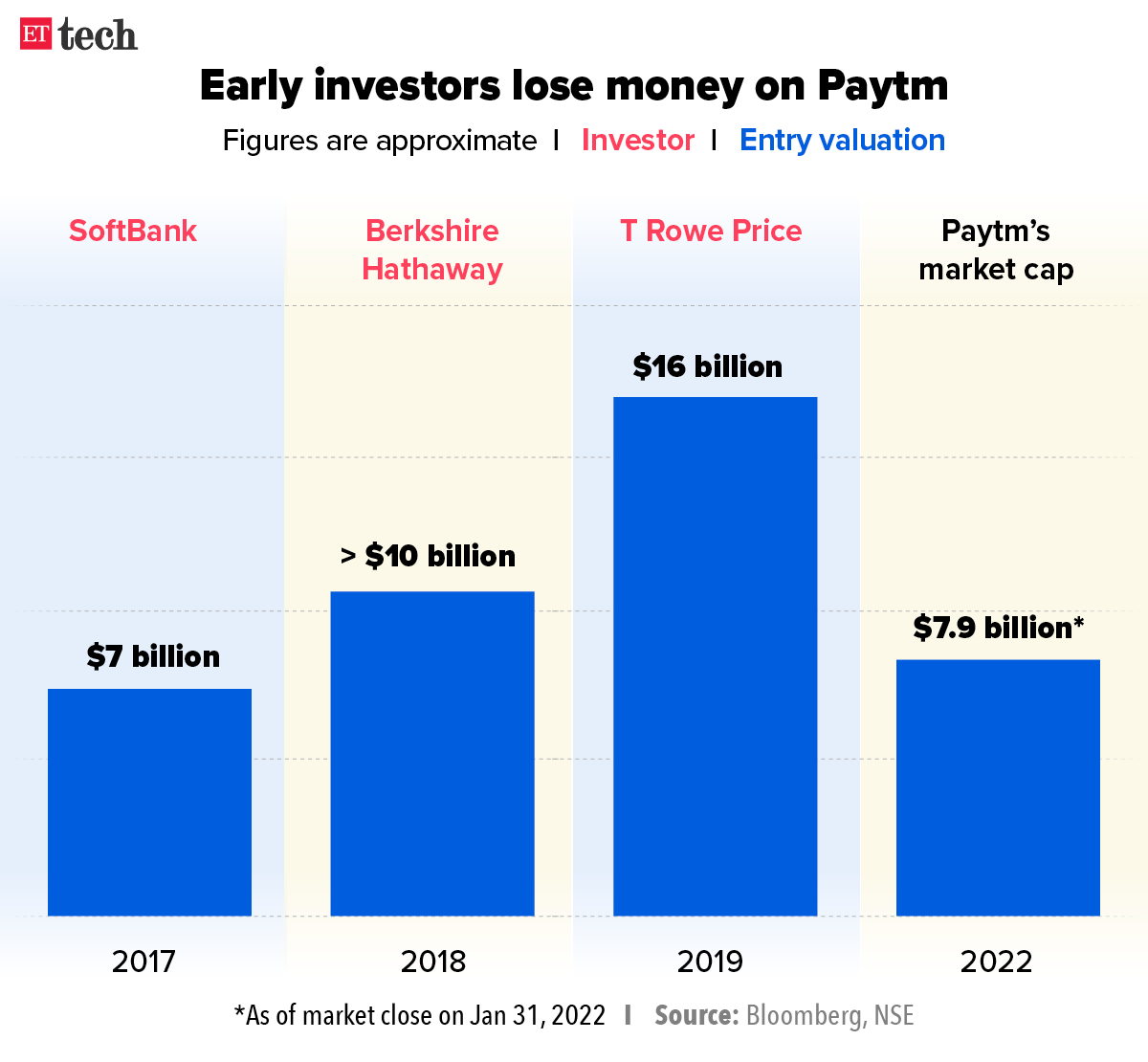Also in this letter:
- Budget wish lists: EV, edtech & ecommerce
- Digitisation drives M&A surge for IT services firms
- Edtech startup Scaler Academy raises $55 million
Everything the Economic Survey said about tech and startups
India now has more than 61,400 startups that are recognised by the Department for Promotion of Industry and Internal Trade (DPIIT), with at least 14,000 recognised during fiscal 2022, according to the Economic Survey 2021-22.
The survey also showed that Delhi has replaced Bengaluru as the startup capital of India in recent years. Over 5,000 recognised startups were added in Delhi while 4,514 startups were added in Bengaluru between April 2019 and December 2021. Maharashtra has the highest number of recognised startups with 11,308, the survey said.
What’s the Economic Survey? It’s the Finance Ministry’s annual report card of the economy, which examines the performance of several sectors and suggests future moves. It also puts forward a GDP growth projection.
Click here for our full explainer on the Economic Survey and why it matters.
What else? The survey said 555 districts in India saw at least one new startup in FY22, showing that startups in India have grown remarkably over the past six years.
- India is home to the world’s third-largest startup ecosystem after the US and China, the survey said. A record 44 Indian startups achieved unicorn status in 2021, taking the overall tally of startup unicorns in India to 83, with most in the services sector, it added.
- The survey also mentioned the string of IPOs by new-age companies such as Paytm, Zomato, Nykaa and Policybazaar. “In April-November 2021, Rs 89,066 crore was raised through 75 IPO issues, much higher than in any year in the last decade,” it said.
IT services: Computer services comprised 49% of total services exports in the first half of fiscal 2022, the survey said. It reported strong growth due to increasing demand for digital support, cloud services and infrastructure modernisation “owing to new pandemic challenges”.
Space tech: The survey also highlighted the growth of space tech startups in India. The number of startups in the sector has increased from 11 in 2019 to 47 in 2021, it said.
At present, India accounts for only about 2% of the space economy, far behind the US and China. With recent policy initiatives and private sector participation, the Indian space sector should capture a larger share of the global space economy, which was close to $447 billion in 2020, they survey said.
Intellectual property: The survey said most of India’s startups are in the IT or knowledge-based sector, for which intellectual property is key. The number of patents filed in India rose from 39,400 in 2010-11 to 45,444 in 2016-17 and 58,502 in 2020-21. The patents granted increase from 7,509 to 9,847 to 28,391 over the same time period.
Emerging tech: Emerging technologies such as artificial intelligence (AI), geospatial mapping and space imagery are playing a significant role in government initiatives across diverse fields, be it mapping skilled workers, improving agricultural yields or improving logistics efficiency, the survey said.
Crypto missing: Cryptocurrencies were not covered in the Economic Survey, Principal Economic Adviser Sanjeev Sanyal told the media after it was tabled in Parliament. He said the government would take a balanced view on crypto regulation as these assets could have implications for the country’s financial stability.
Got a minute?

ETtech’s goal is to bring you the latest news, exclusives, and analysis from the thriving technology and startup sector, and we’re always looking to improve. You can help us do so by filling in a short survey here. Thank you!
Budget 2022-23: EV firms seek inclusive PLI scheme, edtech firms want a tax cut

India’s startups have been petitioning and lobbying the government with their wish lists for Budget 2022, which is now just a day away. Here’s what the EV and mobility, edtech, and ecommerce sectors are seeking from Union Budget 2022-23.
EV startups want a more inclusive PLI scheme: EV and mobility startups want the government to make its production-linked incentive (PLI) scheme more inclusive and reduce the GST on electric two-wheelers. Under the PLI scheme, the government encourages companies to set up or expand manufacturing units to increase domestic production by providing incentives on incremental sales.
Companies also want the Faster Adoption and Manufacturing of Hybrid and EV (FAME) II subsidy programme to be extended beyond 2023. They are also seeking lower taxes.
Edtech firms want lower taxes: While edtech firms continue to meet with the education ministry on regulations for the sector, they are also asking for a tax cut, apart from sops towards tuition fees for students and national training initiatives for teachers.
They are also asking the government to increase its allocation for the sector.
Ecomm firms want simpler GST rules for sellers: Ecommerce firms endured a difficult 2021 after the government proposed controversial and vaguely worded amendments to the rules that govern them. Separately, the Competition Commission of India has been probing both Amazon and Flipkart over allegations of deep discounting and favouring certain sellers.
While the industry looks for clarity on the draft amendments and the long-awaited ecommerce policy, ecommerce companies are asking the government to reduce the compliance burden on sellers to help small businesses leverage the potential of ecommerce and contribute to India’s growing digital economy.
Also read: India can capture a larger share of global space tech pie: Economic Survey

Digital demand drives 40% surge in IT M&A

The growing demand for digitisation projects globally led to a 40% increase in the number of mergers and acquisitions (M&As) by technology services companies in 2021, according to a report by Nasscom and EY.
Highlights: The deal value globally stood at $297 billion, or about Rs 22 lakh crore, in 2021, significantly higher than in the previous year, the report said.
- M&A activity in the industry gained momentum over the last 18 months and many deals were influenced by private equity firms in some manner, it said.
- Companies are trying to gain both skill and fill capability shortages through acquisitions.
- Instances like Infosys’ acquisitions of Simplus and Blue Acord iCi, Cognizant’s acquisition of Servian, and Tech Mahindra acquiring DigitalOnUs were all focused on gaining specific capabilities, the report said.
- Companies are also looking for a way to gain entry into new markets and to gain nearshore delivery through acquisitions.
ETtech Done Deals

- Edtech startup Scaler Academy has raised $55 million in Series B funding round led by Lightrock India, at a valuation of $710 million. Existing investors Sequoia Capital India and Tiger Global co-led the round. It will use the funds for global expansion, its inorganic growth strategy and to beef up its technology platform.
- Logistics platform Loadshare said it has raised $40 million (about Rs 300 crore) in a funding round led by Tiger Global. Filter Capital, 57 Stars, existing investors CDC Group and Matrix Partners India, and a few prominent family offices also participated. The Bengaluru-based company said it plans to further invest in hiring, building logistics technology and adopting more electric vehicles into its fleet.
Meta acted on 19.3 million pieces of Facebook content in December

Meta took action on 19.3 million pieces of harmful and violating content on Facebook and more than 2.4 million such pieces of content on Instagram in December, according to the company’s monthly India report, a requirement under the Information Technology Rules, 2021.
“Taking action” could include removing a piece of content from Facebook or Instagram or covering photos or videos that may be disturbing to some audiences with a warning.
Most of the violative content on Facebook comprised spam, violent and graphic content, and adult nudity and sexual activity. On Instagram, these were suicide and self injury, violent and graphic gontent, adult nudity and sexual activity, and bullying and harassment.
Meta said it uses a combination of artificial intelligence, reports from its community and review by its teams to identify and review content that violates its policies.
Today’s ETtech Morning Dispatch was curated by Arun Padmanaban in New Delhi and Zaheer Merchant in Mumbai.
























